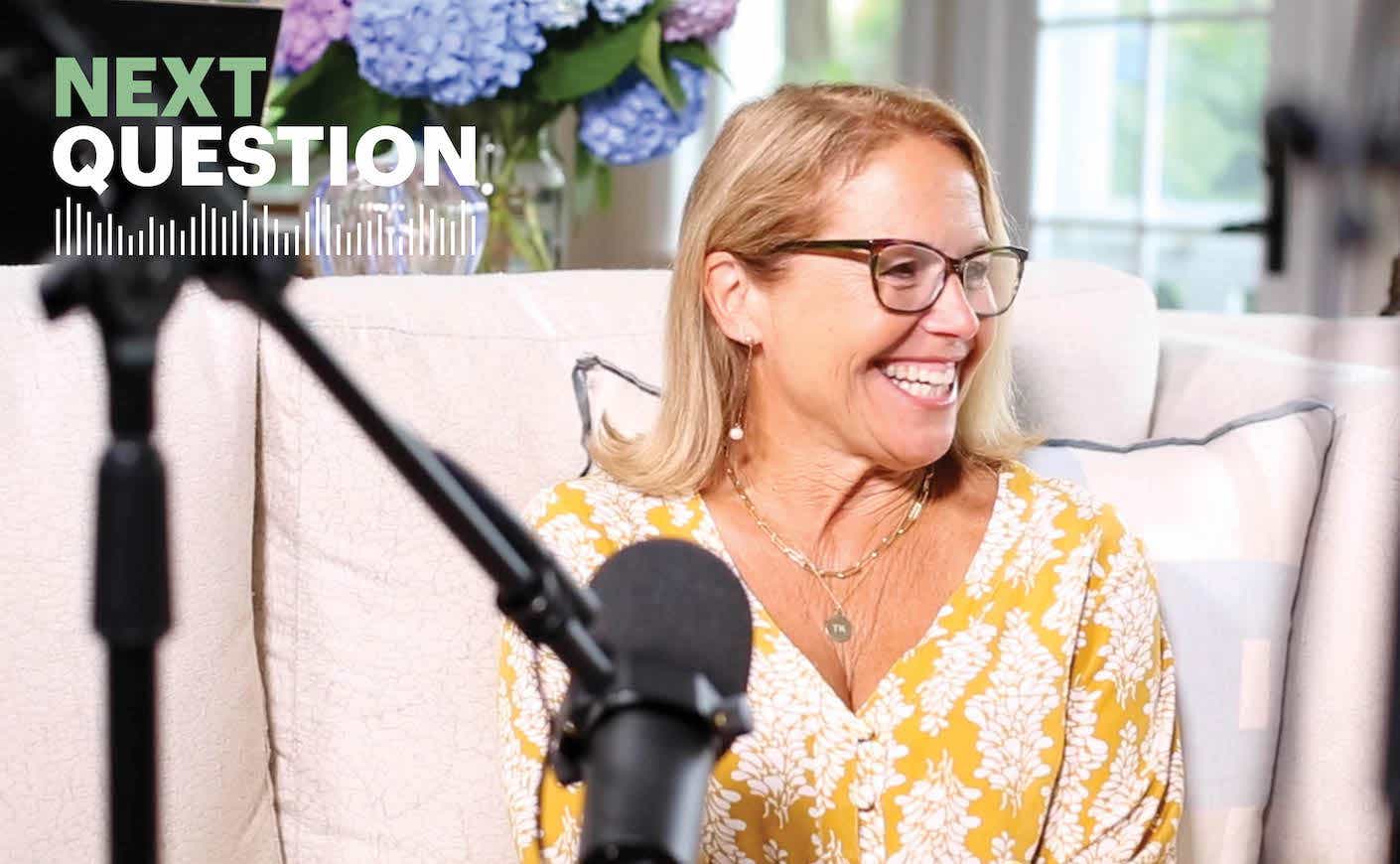In two new episodes of Next Question, Katie is pulling back the curtain on her Going There writing process and reflecting on the events that shaped her as a legendary broadcaster, a wife, and a mother. In the first episode, out this Thursday, she opens up about navigating a male-dominated industry, the sexism she faced along the way, and her decision to have a family at a time when examples of ambitious women — who had both reached the height of their fields and were mothers — seemed scarce.
“Our generation was really the first to be full throttle in the workforce,” Katie tells Lucy Kaylin, a longtime magazine editor and close collaborator on her memoir, on the podcast. “I think it was almost like 50-50…a lot of women in our generation were choosing to get married and raise their families and drop out of the workforce if they entered it at all. And then there were people like us who didn’t want just a job, as we talk about in the book, we wanted careers. And I think one of the things that motivated me is, I really wanted to be financially independent and I did not, I could not tolerate the feeling of relying on someone else.”
Katie describes herself as “hyper-focused” on climbing the ladder, up from a local news reporter in Miami, to CNN, TODAY, the CBS Evening News, and ultimately as the founder of her own media company. But it wasn’t easy. Like many women operating in heavily male fields, she encountered casual sexism, was sexually harassed, and had to take great risks to be heard in the studio.
She says when she first became co-host of TODAY, “I insisted on an equal partnership with Bryant Gumbel,” which she remarked was “pretty ballsy for a 34-year-old woman.”
She also felt the need to break out of the traditional mold of a female anchor. “I realized to myself just instinctively, I think to be successful in this job, you can’t put on airs. You have to be yourself, you have to be authentic,” she says. With her Dorothy Hamill haircut, “I think I was probably more relatable than most of the people who had been in that role,” Katie tells Kaylin.
“[You didn’t do the] Barbie thing, which was very alienating for a lot of us women” or feel “subservient to her male counterparts,” Kaylin says. “You led with your personality and you led with your intelligence and your emotional intelligence. That felt new,” and left a strong impression on women at the time, Kaylin says.
In the episode, she says one of the elements about writing the book that she loved most was looking back on the major events she covered years ago and how she covered them. For example, Anita Hill’s 1991 testimony that Supreme Court nominee Clarence Thomas had sexually harassed her. “You know, it’s sort of crazy when you think of sexual harassment, even though I experienced it and you experienced it early in our career, that was the first time that someone had really put a name and a face and actions to the term,” she says to Kaylin.
Katie also recalls the moment she knew that she didn’t want just a career, but also a family. She had looked up to another trailblazer in her field, Cassie Mackin, a Washington correspondent for ABC News who died of cancer at 43 without having married.
“I remember seeing that and thinking, you know, I don’t want to just be focused on my career. I want to have a family. I want to be married. I want to have children. So I did kind of want it all,” Katie said.
For more behind-the-scenes moments from Katie’s memoir, tune into the full episode of Next Question — part 1 is out later this week! And make sure to buy her book, which is out now, and tickets to her book tour!








